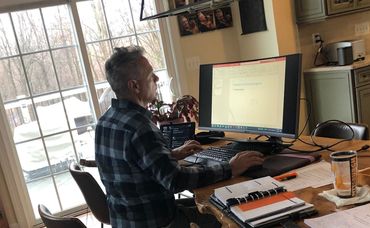Buying a home is a major life decision. Not only is your home the place where you’ll spend a large amount of your time—and maybe even more time as the work-from-home trend continues—buying a home is a large financial investment.
As a result, homebuyers typically need a mortgage from a bank or other financial institution to supplement any cash they’re using for a down payment. Interest on this mortgage adds to the total of what you’re ultimately paying for the home over time.
One of the silver linings of the COVID-19 pandemic is all-time low mortgage rates. In May of 2000, 30-year fixed rate mortgages through government-sponsored lender Freddie Mac reached their most recent peak at 8.64%. Rates have declined relatively steadily over the last 20 years and have now hit all-time lows, dipping below 3% for the first time ever in July 2020.
Unfortunately, even though rates have come down since the COVID-19 pandemic set in, self-employed individuals and small business owners all over the country are now facing increased obstacles when it comes to applying for a mortgage.
What do mortgage lenders look for?
When applying for a mortgage—whether you’re self-employed or a W-2 employee—lenders want to make sure you are someone who will make consistent payments toward paying off the loan. Lenders want to ensure applicants have a good credit history, sufficient liquid assets available, a history of stable employment, and a low debt-to-income ratio.
To assess creditworthiness, mortgage lenders require borrowers to submit federal income tax returns from the last two years as well as recent pay stubs to ensure you have a steady income stream. However, because most self-employed people don’t receive pay stubs, they need to provide other documentation to prove financial stability.
What do self-employed individuals need to provide when applying for a mortgage?
Historically, most mortgage lenders required self-employed individuals to provide a two-year history of self-employment earnings to ensure that that income was stable and that the business (whether it be a sole proprietorship, partnership, or corporation) was currently operating.
Now, in the COVID-era, mortgage lenders are requiring self-employed individuals to also supply a year-to-date profit and loss statement as well as at least two recent months of business bank statements.
Can self-employed individuals qualify for mortgages?
Yes, and—like with anyone else—if you have documented proof of good credit history, available liquid assets, history of stable employment, a low debt-to-income ratio, and patience with paperwork, receiving a mortgage loan can be just as straightforward for a self-employed person.
Can 15 West Homes help you apply for a mortgage?
There are lenders that actually specialize in helping self-employed individuals get a mortgage with a competitive rate. Please reach out to us, and we’ll be happy to pass along names and contact information to you. It’s always good to talk to a couple lenders as you begin the process.





 By submitting information, I am providing my express written consent to be contacted by representatives of this website through a live agent, artificial or prerecorded voice, and automated SMS text at my residential or cellular number, dialed manually or by autodialer, by email, and mail.
By submitting information, I am providing my express written consent to be contacted by representatives of this website through a live agent, artificial or prerecorded voice, and automated SMS text at my residential or cellular number, dialed manually or by autodialer, by email, and mail.
